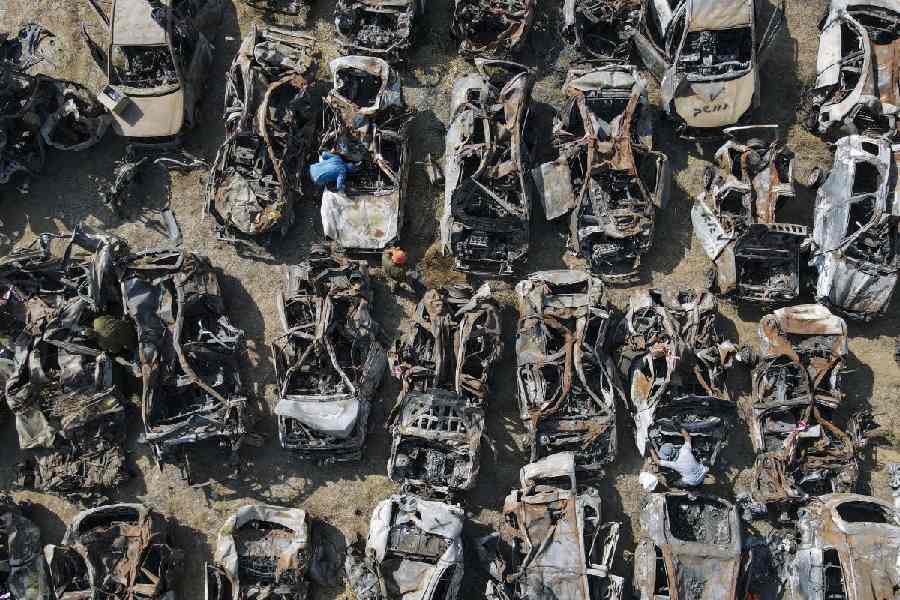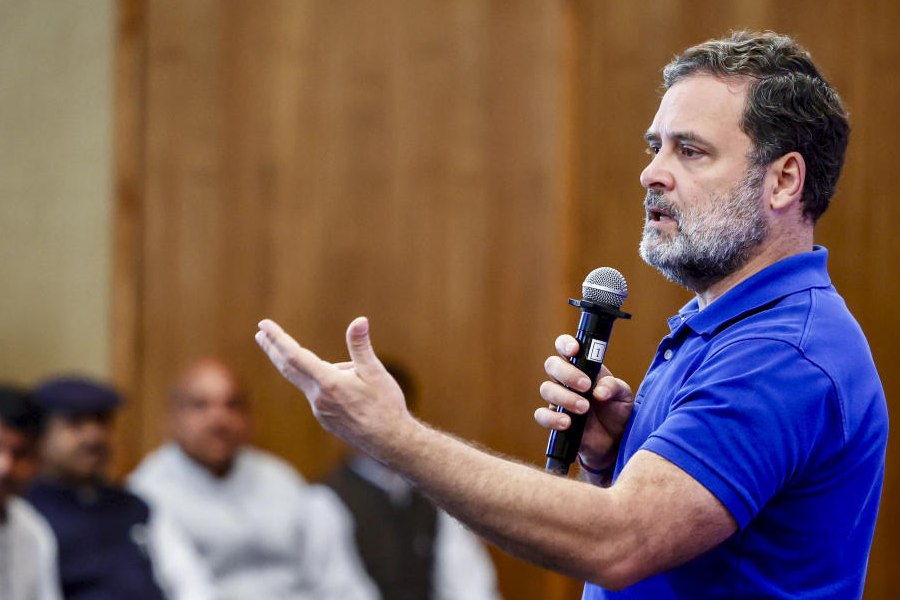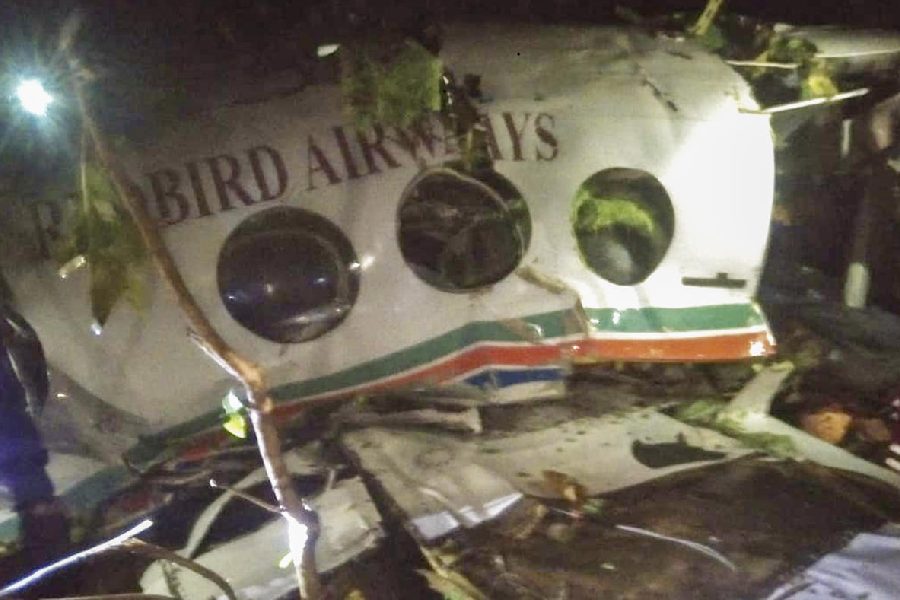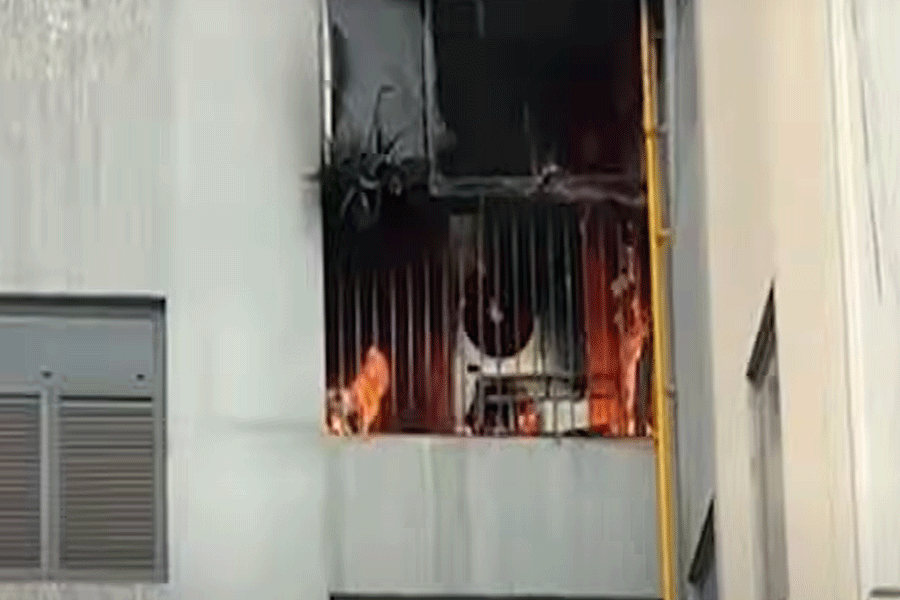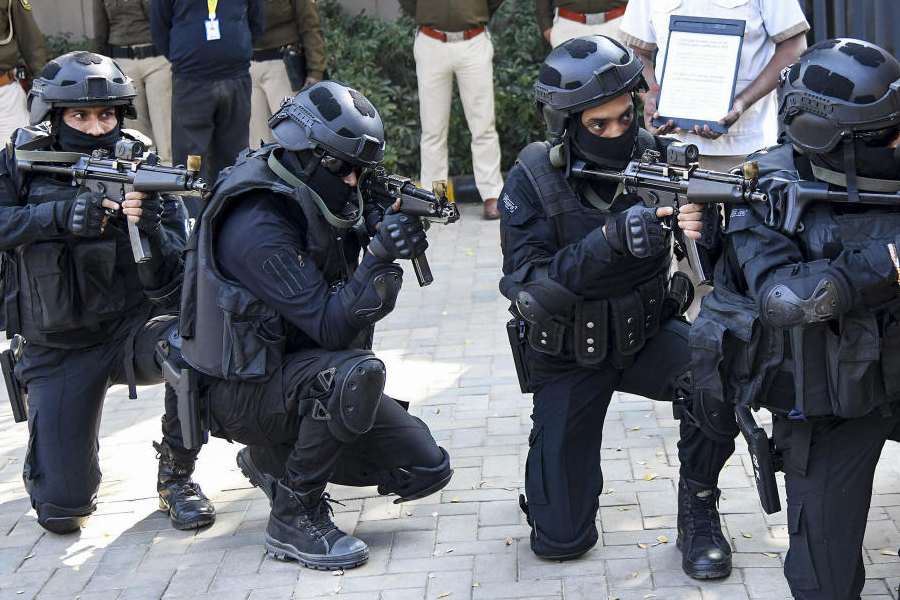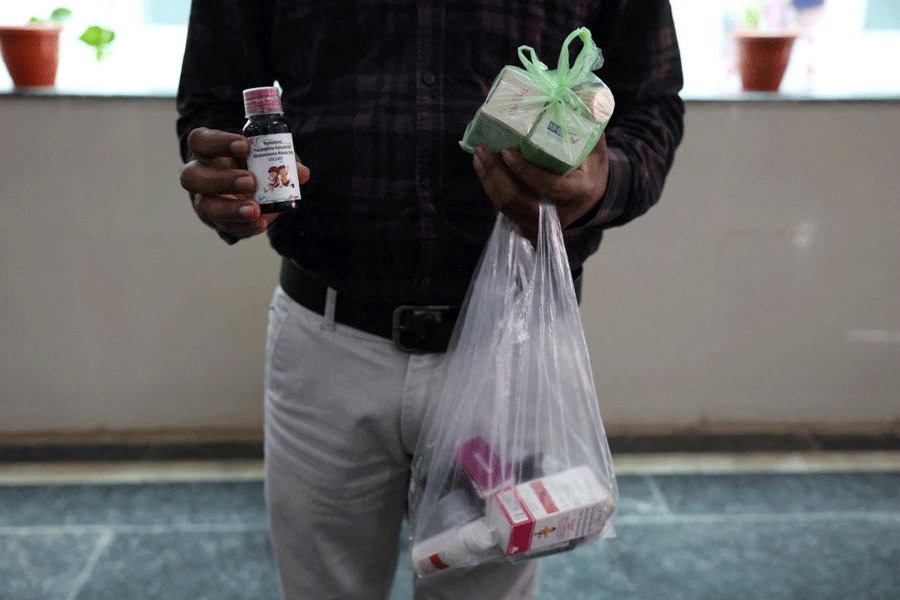The Hamas-run government in Gaza says Israeli airstrikes have hit apartment buildings in a refugee camp near Gaza City for a second day in a row, causing many deaths and injuries. The toll from Wednesday's strikes was not immediately known.
Meanwhile, dozens of people with foreign passports entered the Rafah crossing from Gaza to Egypt. It appeared to be the first time that foreign passport holders have been allowed to leave the besieged territory since the start of the Israel-Hamas war more than three weeks ago.
Communications and internet services were gradually being restored after the second major cut in five days, according to Paltel, the main service provider. Humanitarian aid agencies have warned that such blackouts severely disrupt their work in an already dire situation in Gaza.
The Palestinian death toll in the Israel-Hamas war has reached 8,525, according to the Hamas-run Health Ministry in Gaza. In the occupied West Bank, more than 122 Palestinians have been killed in violence and Israeli raids.
More than 1,400 people in Israel have been killed, most of them civilians slain in the initial October 7 Hamas rampage that started the fighting. In addition, around 240 hostages were taken from Israel into Gaza by the militant group. One of the captives, a female Israeli soldier, was rescued in a special forces operation.
Lebanon's caretaker prime minister said Wednesday that time is of the essence in stopping the Hamas-Israel war from “going out of control” and affecting Lebanon and the wider region.
Najib Mikati has been scrambling with international governments to keep Lebanon away from the war, as militants from the Hezbollah group and Israeli troops have been clashing along the tense Lebanon-Israel border since the onset of the war on Oct. 7. The clashes so far have mostly been limited to areas along the border.
His comments come days before Hezbollah leader Hassan Nasrallah is scheduled to give his first speech since the start of the war. Lebanon is experiencing political paralysis and economic turmoil, leaving many worried of the consequences of a fully fledged war in the crisis-hit country.
He condemned both Israeli strikes in southern Lebanon and attacks in the blockaded Palestinian Gaza Strip.
"A humanitarian cease-fire for five days is necessary, where there can be active international talks to secure prisoner swaps and reach a permanent truce in order to reach an agreement on the conditions for regional peace,” Mikati said before a government meeting.
Israel and Hezbollah fought a monthlong war in 2006 that ended in a draw. Israel sees Hezbollah as its most immediate threat, estimating that it has some 150,000 precision-guided missiles pointed at it.
“Enough war in Lebanon, for we are with the choice of peace,” Mikati said.
Heads of Israeli universities sent a letter to colleagues around the world expressing deep concern over anti-Israel and antisemitic discourse at some universities following Hamas's deadly attack on Israel and the war it triggered in the Gaza Strip.
The Association of University Heads in Israel also criticized what it sees as the inadequate response of some academic leaders.
“It's unsettling to note that many college campuses have become breeding grounds for anti-Israel and antisemitic sentiments, largely fueled by a naïve and biased understanding of the conflict,” the letter said.
“Freedom of speech is a cornerstone of academic freedom, but it should not be manipulated to legitimize hate speech or to justify violence.”
Tensions on campuses in the US and Europe have been inflamed since the Hamas attack. Some students and faculty have expressed support for the militant group and its attack.
At Harvard, a coalition of more than 30 student groups said Israel was “entirely responsible” for the Hamas attack that killed more than 1,400 people.
At Cornell University, police were sent to guard the Center for Jewish Living over intimidating posts.
The comments have raised fundamental questions regarding free speech and its limits.
“Just as it would be unthinkable for an academic institution to extend free speech protections to groups targeting other protected classes, so too should demonstrations that call for our destruction and glorify violence against Jews be explicitly prohibited and condemned,” the Israeli university heads said in their letter.
Meanwhile, dozens of people with foreign passports entered the Rafah crossing from Gaza to Egypt. It appeared to be the first time that foreign passport holders have been allowed to leave the besieged territory since the start of the Israel-Hamas war more than three weeks ago.
Communications and internet services were gradually being restored after the second major cut in five days, according to Paltel, the main service provider. Humanitarian aid agencies have warned that such blackouts severely disrupt their work in an already dire situation in Gaza.
The Palestinian death toll in the Israel-Hamas war has reached 8,525, according to the Hamas-run Health Ministry in Gaza. In the occupied West Bank, more than 122 Palestinians have been killed in violence and Israeli raids.
More than 1,400 people in Israel have been killed, most of them civilians slain in the initial October 7 Hamas rampage that started the fighting. In addition, around 240 hostages were taken from Israel into Gaza by the militant group. One of the captives, a female Israeli soldier, was rescued in a special forces operation.
Lebanon's caretaker prime minister said Wednesday that time is of the essence in stopping the Hamas-Israel war from “going out of control” and affecting Lebanon and the wider region.
Najib Mikati has been scrambling with international governments to keep Lebanon away from the war, as militants from the Hezbollah group and Israeli troops have been clashing along the tense Lebanon-Israel border since the onset of the war on Oct. 7. The clashes so far have mostly been limited to areas along the border.
His comments come days before Hezbollah leader Hassan Nasrallah is scheduled to give his first speech since the start of the war. Lebanon is experiencing political paralysis and economic turmoil, leaving many worried of the consequences of a fully fledged war in the crisis-hit country.
He condemned both Israeli strikes in southern Lebanon and attacks in the blockaded Palestinian Gaza Strip.
"A humanitarian cease-fire for five days is necessary, where there can be active international talks to secure prisoner swaps and reach a permanent truce in order to reach an agreement on the conditions for regional peace,” Mikati said before a government meeting.
Israel and Hezbollah fought a monthlong war in 2006 that ended in a draw. Israel sees Hezbollah as its most immediate threat, estimating that it has some 150,000 precision-guided missiles pointed at it.
“Enough war in Lebanon, for we are with the choice of peace,” Mikati said.
Heads of Israeli universities sent a letter to colleagues around the world expressing deep concern over anti-Israel and antisemitic discourse at some universities following Hamas's deadly attack on Israel and the war it triggered in the Gaza Strip.
The Association of University Heads in Israel also criticized what it sees as the inadequate response of some academic leaders.
“It's unsettling to note that many college campuses have become breeding grounds for anti-Israel and antisemitic sentiments, largely fueled by a naïve and biased understanding of the conflict,” the letter said.
“Freedom of speech is a cornerstone of academic freedom, but it should not be manipulated to legitimize hate speech or to justify violence.”
Tensions on campuses in the US and Europe have been inflamed since the Hamas attack. Some students and faculty have expressed support for the militant group and its attack.
At Harvard, a coalition of more than 30 student groups said Israel was “entirely responsible” for the Hamas attack that killed more than 1,400 people.
At Cornell University, police were sent to guard the Center for Jewish Living over intimidating posts.
The comments have raised fundamental questions regarding free speech and its limits.
“Just as it would be unthinkable for an academic institution to extend free speech protections to groups targeting other protected classes, so too should demonstrations that call for our destruction and glorify violence against Jews be explicitly prohibited and condemned,” the Israeli university heads said in their letter.

